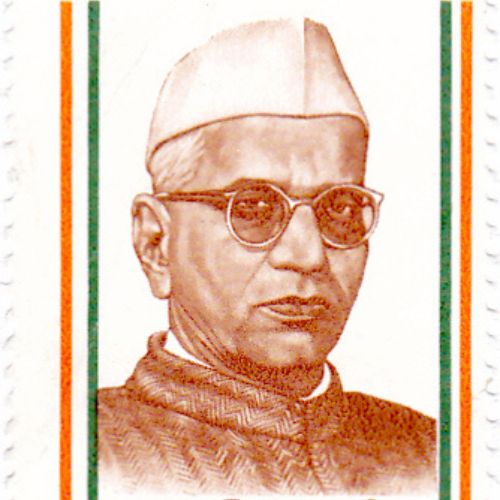Early Life:
N.V. Gadgil was born on 10 January 1896 in Maharashtra. He graduated from Fergusson College, Pune (1918) after which he also obtained a degree in law (1920).
Role in India’s Independence Movement:
After receiving his law degree, Gadgil joined the Indian National Congress and actively participated in India’s freedom movement. He was imprisoned eight times for his involvement in various freedom struggle activities. Gadgil rose to prominence as a significant national leader through his contributions to the independence struggle.
He was a pioneer of various social reform movements in Maharashtra in the 1930s and had a thriving political career too. Gadgil served as the Secretary of the Poona District Congress Committee (1921 to 1925), the President of the Maharashtra Pradesh Congress Committee (1937 to 1945), and the Secretary of the Congress Legislative Party (1945 to 1947). In 1934, he was elected to the Legislative Assembly of the Central Provinces.
Contribution to Constitution Making:
Gadgil was elected as a member of the Constituent Assembly from Bombay through a Congress party ticket. He actively participated in various Assembly debates including ones around the national language of India, the federal set up of the nation and the discussion on the budget estimates of the Assembly.
Later Contributions:
Gadgil served as a minister of Public Works, Mines and Power (1947 and 1952) and as a member of the Congress Working Committee (1952 to 1955). He was also the Governor of Punjab (1958 to 1962).
Gadgil significantly contributed to Marathi Literature and for this he was elected as the President of the Marathi Sahitya Sammelan (1962). He was the vice-chancellor of Poona University from 1964.
The Indian Posts & Telegraphs Department issued a commemorative stamp in his honour of being a veteran freedom fighter and national leader.
He passed away on 12 January 1966.
Key Writings:
Gadgil published a number of books and essays in the fields of politics, economics, law, and history. He wrote a large number of his works in Marathi. A few of Gadgil’s writings include: Pathik (Autobiography), Rajya Shastra Wichar, Shubha Shastra, Waktrutwa Shastra, Gyanbache Arthashastra, Government from Inside and Shikhancha Itihaas (History of Sikhs).
- Gadgil argued that Hindi should be made the national language and Devnagiri the script. He believed that having a single language for the entire Union would be an achievement the Assembly should work towards. He believed that the non-Hindi speakers could eventually learn the language and would choose Hindi as the national language over English, if given the option.
- When a Bill is sent to the Governor of a State for his/her assent, Gadgil felt that the Bill should be sent back within a limited period- with or without amendments, failing which it would be assumed that the Governor consented to it.
- He believed that it would be impossible to govern a country as large as India through a unitary set up. He strongly advocated for a federal form of government for the better administration of an extremely diverse nation.

